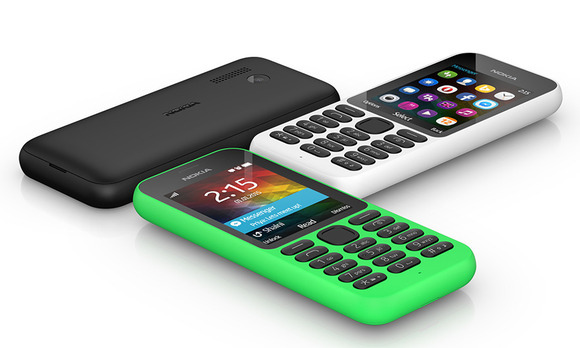Microsoft's steady decline in the mobile phone business continues, as the Redmond, Wash., company announced on Wednesday that it will sell the feature phone division it acquired from Nokia to a subsidiary of manufacturer Foxconn for $350 million.
Foxconn's purchase was made in partnership with HMD Global, a new Finnish company that's been granted an "exclusive global license" to build Nokia-branded phones and tablets for the next 10 years. In short, the $350 million deal means that Nokia devices will once again return to the market.
Manufacturing, sales and distribution from Microsoft's feature phone business will be acquired by FIH Mobile Limited, a subsidiary of Foxconn. HMD and Nokia Technologies, then, will establish a "collaboration framework" for building new Nokia phones and tablets.
The sale — and subsequent plans for rebirth — of Nokia's feature phone business are the latest chapter in Microsoft's $7.2 billion purchase of Nokia's mobile phone operations from 2013. Microsoft had hoped the acquisition of Nokia could allow it to improve sales for its floundering Windows Phone division, but in the years since, market dominance by Apple's iPhone and devices running Google's Android has only grown.
Of course, Microsoft had little-to-no interest in the low-margin, shrinking feature phone business, so the sale of that division should come as no surprise. The company had announced internally in 2014 that it was planning to wind down the feature phone business over the course of the following 18 months.
As Windows Phone has floundered, Microsoft has focused on bringing its software and services to rival platforms, like Apple's iOS. For example, Microsoft's own Word Flow keyboard debuted on the iOS App Store last month, allowing for easier one-handed typing.
HMD said on Wednesday that the new agreement with Foxconn and Microsoft includes the right to use the Nokia brand on feature phones, as well as certain design-related rights. HMD plans to invest over $500 million over the next three years to support its Nokia-branded feature phones and tablets.
 Katie Marsal
Katie Marsal








 Wesley Hilliard
Wesley Hilliard
 Malcolm Owen
Malcolm Owen
 Andrew Orr
Andrew Orr
 William Gallagher
William Gallagher
 Sponsored Content
Sponsored Content
 Christine McKee
Christine McKee

 Thomas Sibilly
Thomas Sibilly






29 Comments
So Microsoft took an almost $7B hit on this purchase. How did Wall Street respond? They probably said it was a good deal.
Isn't Foxconn's involvement a conflict-of-interest with their heavy involvement in iPhone assembly?
Or is it like the Samsung relationship: cooperate in one area (assembly) and compete in another area (finished products)? Or maybe it's not a COI because feature-phone are a different category than Apple's smartphones?